Marketers talk endlessly about standing out. Yet too often, brands fall into the commodity trap. They end up sounding and looking like everyone else, and competing on price rather than value. Barry LaBov has spent his career helping companies avoid that fate.
Barry is a two-time Ernst & Young Entrepreneur of the Year, celebrated author, and founder of LABOV, a marketing agency trusted by brands like Harley-Davidson, Audi, and The Macallan.
On The Undiscovered Metric, he sat down with host Michelle LaGrutta, Customer Marketing Manager at Adverity to share why differentiation is the most important idea in marketing today, and how data can either strengthen or weaken it. Read on for key insights or watch the full episode below.
Differentiation is discovery, not invention
For Barry LaBov, differentiation is more than a buzzword. It’s the essence of what makes a brand memorable.
“Differentiation is not the same thing as superiority. Differentiation means your character. It’s something that makes you unique,” he explains. The challenge isn’t to invent something new, but to discover what already makes your brand distinct and celebrate that, starting with employees who embody it.
 True differentiation comes from uncovering what already makes you stand out.
True differentiation comes from uncovering what already makes you stand out.Barry stresses that differentiation begins internally. If your own people don’t recognize or believe in what makes the company unique, no amount of external messaging will land. Employees are the first audience for differentiation, and their buy-in fuels authentic storytelling.
When employees see that uniqueness is recognized, it doesn’t just guide external messaging; it builds pride and morale inside the company. In other words, differentiation isn’t just a marketing exercise. It’s a cultural foundation that shapes how a company operates, recruits, and retains talent.
Data should support creativity, not bury it
Data and technology can be powerful tools for creativity, but only if used with care.
“We routinely utilize technology and data to determine what is strongest about what our clients do, what their competitors also promise, what resonates with people. But when it all comes back down to it, we filter it through our talent, not our technology.”
Barry warns against surrendering judgment to metrics alone. One client in the stainless steel container industry lowered prices because the data suggested the market wouldn’t support a premium. What they ignored was their breakthrough safety innovation. “They actually hid the uniqueness,” he recalls.

Once they brought that differentiation to the forefront, morale rose along with revenue. So while data can be great for spotting emerging trends and amplifying marketing efforts, ultimately it’s down to people to recognize and test which strategic opportunities truly align with the brand’s DNA and to steer that differentiation.
AI has a brain, but no conscience
Generative AI is now a daily tool for many marketers, Barry included. But he draws a sharp line between using AI for efficiency and letting it take over creativity.
“AI won’t have a conscience, but it has an incredible brain. We just need to provide the conscience,” he says. Without human oversight, brands risk sounding generic and losing authenticity.
AI can accelerate ideation and surface endless options, but it can’t judge whether those ideas are true to your brand or meaningful to your audience. Marketers are still an essential part of the process, applying the human lens of differentiation and storytelling to decide what’s worth pursuing. Used this way, AI becomes a partner in the creative process rather than a substitute for it.
Data and creativity can uncover hidden value
Barry also shared a story from a medical furniture company that thought of itself as a leader in design. The data told a different story: customers rated their design poorly but praised their engineering.
“It was semantics. The leader looked at design as the same thing as engineering. But in the minds of customers, it was very different,” Barry explains. By reframing their differentiation as engineering excellence and updating their design language, the company turned a weakness into a strength.

What could have been years of frustration and wondering why customers weren’t responding became an opportunity to double down on what truly set them apart. Data provided the clarity, but it took creativity to reposition the message and storytelling. The lesson: when used well, data doesn’t just confirm what you already believe. It can reveal hidden truths that spark new ways to differentiate and reconnect with your market.
The opportunity and the limit of data
Looking ahead, Barry sees huge value in using data to quickly absorb what competitors are promising and what customers demand. In minutes, marketers can gather insights that once would have taken months, and use them to spot emerging trends or gaps in the market.
But speed doesn’t guarantee success. Barry cautions that brands must remain authentic to their DNA. If every decision is dictated by what the data says competitors are doing, the result is sameness, which is exactly what differentiation is meant to avoid.
“The more we can tap into what’s going on around us, the better,” he says. “But we have to allow it to affect our creativity in ways that feel natural to us and true to our brand.”
Final thoughts
The real opportunity lies in balance. Data provides the signal, creativity shapes the story, and human judgment ensures both stay aligned with the brand’s unique identity. When those three elements work together, differentiation becomes not just a marketing tactic, but a sustainable competitive advantage.
Differentiation isn’t about being louder than the competition. It’s about discovering your unique character, validating it with data, and bringing it to life through meaningful stories.
As Barry puts it, “Our uniqueness is not something we can just go create this morning. It’s something that is already inside of us. It’s in our DNA.”
About Barry Labov
Barry Labov is a two-time Ernst & Young Entrepreneur of the Year, celebrated author, and the founder of LABOV, a marketing agency trusted by brands like Harley-Davidson, Audi, and The Macallan. His book, The Power of Differentiation, explores how companies can escape the commodity trap by uncovering and amplifying what makes them truly unique. He’s also the host of the Difference Makers podcast, where he speaks with leaders across industries about how differentiation drives lasting business success.











